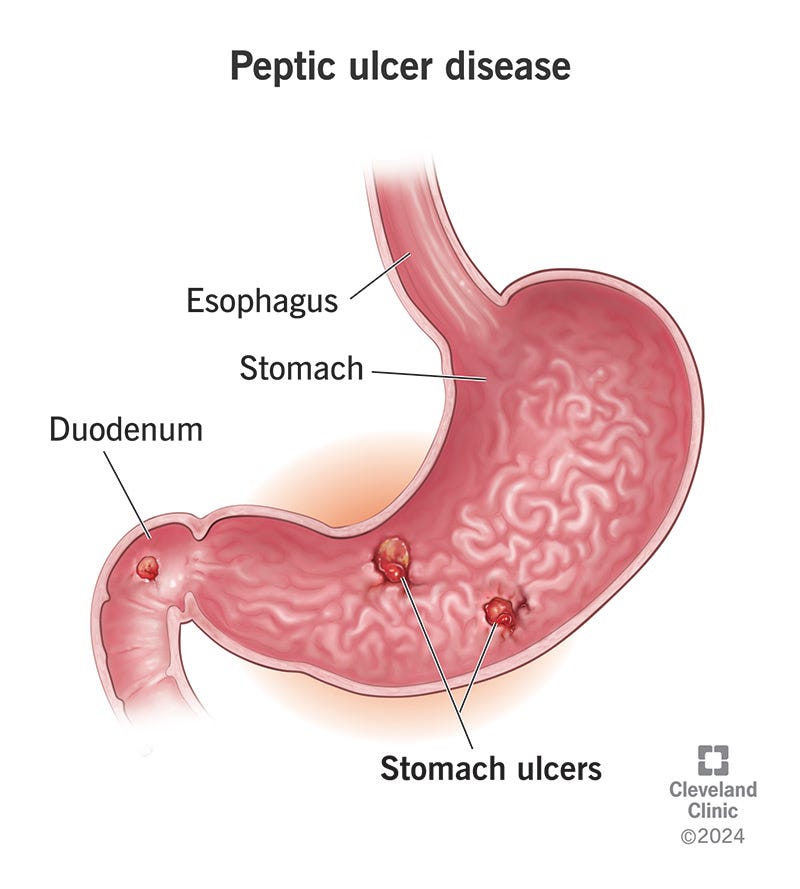Peptic Ulcer
Written by Lordina Yelioni
Studies have shown that peptic ulcers are caused primarily by the disruption of the protective lining of the stomach or small intestine, often due to an infection by Helicobacter pylori (H. pylori) or the long-term use of nonsteroidal anti-inflammatory drugs (NSAIDs) like ibuprofen or aspirin.
One of the most significant causes is H. pylori, which affects millions worldwide. It weakens the stomach’s defense against acid, making it easier for the lining to erode. Research shows that NSAIDs further increase the risk by reducing the stomach’s production of mucus, a key protective factor.
Peptic ulcers lead to a range of symptoms, including burning stomach pain, bloating, nausea, and weight loss, and in severe cases, can result in internal bleeding or perforation of the stomach wall. 20% of patients may experience complications such as bleeding, which is a serious and potentially life-threatening condition if not addressed quickly.
In addition to being a significant health concern on Earth, it’s important to understand that the mechanisms of ulcers can offer insight into treating gastrointestinal issues that arise from spaceflight or extreme environments. The connection between increased stress, dietary restrictions, and altered gravity on gastrointestinal health is of particular interest to astronauts.
The current research into proton pump inhibitors (PPIs) and antibiotics for treating H. pylori has already improved the management of peptic ulcers. However, ongoing studies aim to create more
targeted therapies that can not only eliminate the infection but also regenerate damaged tissue to ensure full recovery.
These studies go beyond treating peptic ulcers. They could help advance personalized medicine and pharmacogenomics by predicting which patients will respond best to certain treatments. As treatments improve, they could also benefit people with other gastrointestinal disorders, improving the quality of life for many worldwide.
References
Cleveland Clinic. (2020). Peptic Ulcer Disease. Retrieved from https://my.clevelandclinic.org/health/diseases/4114-peptic-ulcer-disease
Lanas, A., & Chan, F. K. L. (2017). Peptic ulcer disease. The Lancet, 390(10094), 613-624.
Written by Lordina Yelioni from MEDILOQUY


